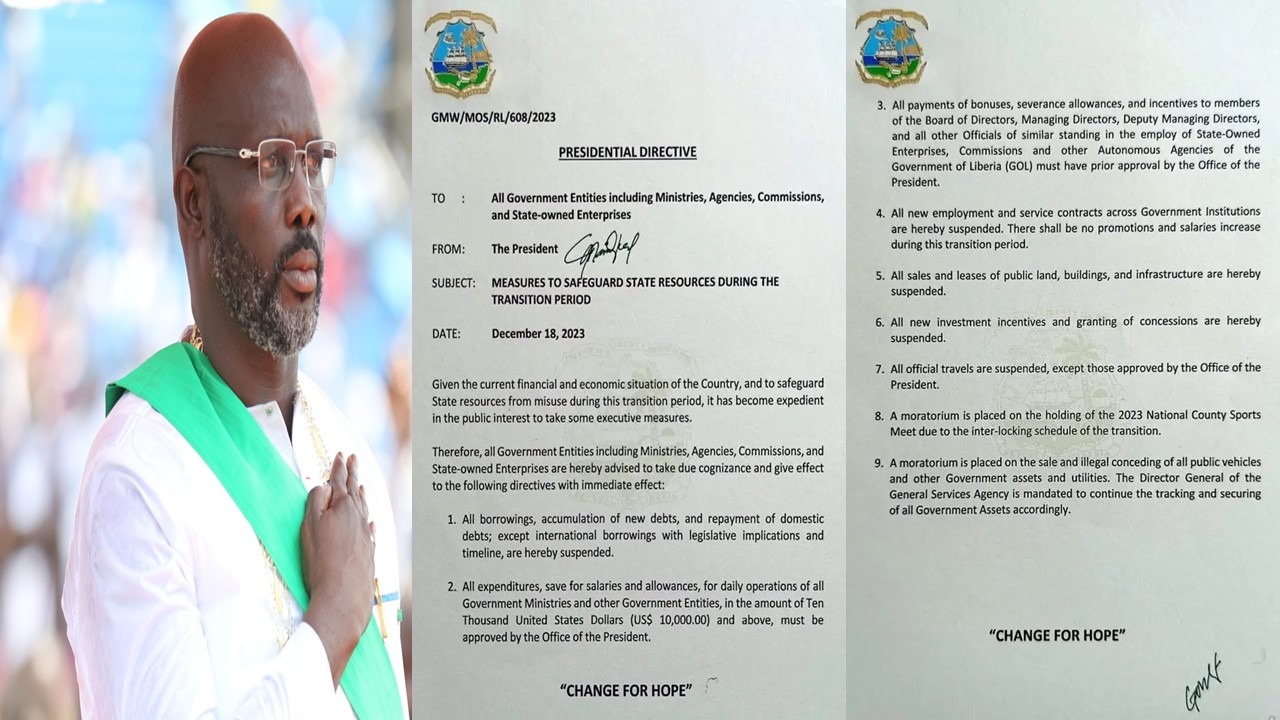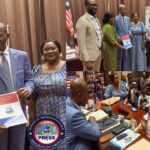In a significant move aimed at securing the proper use of Liberia’s resources during the transition period, President George Weah has instructed all government entities to seek approval from his office for expenditures. The directive covers payments of bonuses and service allowances to directors, deputies, and officials of similar standings in state-owned enterprises, commissions, and agencies.
President Weah’s decision to centralize the approval process for expenditures is driven by the current financial and economic situation of the country. The move is intended to ensure fiscal responsibility and prevent any misuse of state resources during this critical period.
The president’s directive extends beyond personnel payments; it includes all expenditures, excluding salaries and allowances for daily operations, exceeding US$10,000. Such expenditures must now obtain approval from the president’s office, providing an additional layer of oversight to prevent financial improprieties.
In a communication addressed to all Government of Liberia entities, President Weah underscored that the measure is crucial for curtailing the misuse of state resources during the transition period. He further emphasized the importance of adherence to this directive by all ministries, agencies, commissions, and state-owned enterprises.
The president’s decision has raised eyebrows among political pundits, who interpret it as validation for claims of widespread misappropriations and misuse of state resources without proper oversight. The directive, in essence, acknowledges the need for heightened scrutiny and control to ensure that public funds are utilized responsibly.
Furthermore, the president’s directive establishes a clear message and a call to action for the incoming administration of the Unity Party. It implies that an audit of the outgoing government’s financial records is imperative to verify whether resources allocated through the national budget were utilized for their intended purposes.
As Liberia navigates through this critical juncture, the president’s move reflects a commitment to fiscal accountability and responsible governance. The directive not only addresses immediate concerns about the potential misuse of resources during the transition but also sets a precedent for enhanced financial oversight in the future.
The call for an audit by the incoming administration echoes the necessity of transparency and accountability in public financial management. It emphasizes the importance of ensuring that every dollar allocated to government entities serves the best interests of the Liberian people.
In the coming weeks and months, all eyes will be on how the government entities respond to and implement President Weah’s directive. The efficacy of these measures will undoubtedly impact the perceptions of the public and stakeholders regarding the government’s commitment to good governance and prudent financial management during this transitional phase.




